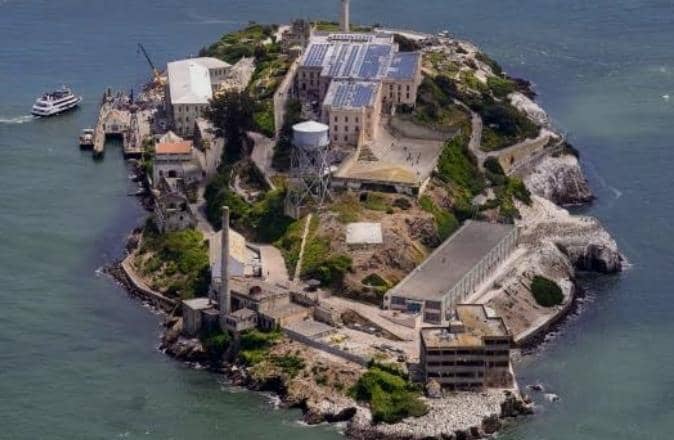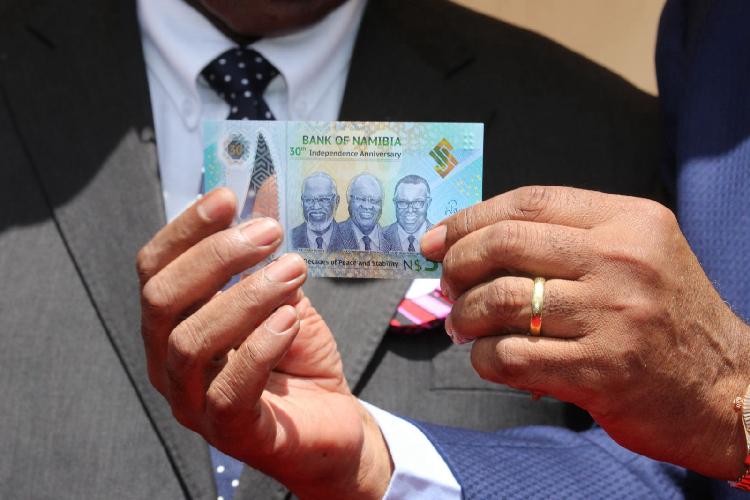THE 15-year jail term that a young farmworker received in late 2001 for his role in the aftermath of the murder and robbery of an Okahandja area farm resident was cut on appeal to an effective ten years’ imprisonment on Monday.
In an appeal judgement handed down in the Supreme Court, Acting Judges of Appeal Johan Strydom, Simpson Mtambanengwe and Fred Chomba on Monday reduced the 13-year term of imprisonment that farmworker Martin Jason received at the end of his trial in the High Court on November 23 2001 on a charge of murder to a nine-year sentence. Jason was convicted as an accessory after the fact to the crime of murder.One of his co-accused in his High Court trial before Acting Judge Petrus Unengu, Anton Venasi, was convicted of murder as an actual perpetrator of the crime.He was sentenced to an effective 39 years’ imprisonment.The two men, as well as a third accused, former Okahandja-based Police officer Gerson Boois, were on trial in connection with the murder and robbery of a 50- year-old farm resident, Johannes Fransiscus (‘Jan’) Bergh, at a smallholding on the farm Osona near Okahandja on October 7 1999.During their trial, Venasi at first disavowed a statement in which he implicated Boois as having been the mastermind behind the attack on Bergh, before he again made a turnabout in his testimony to claim that Boois had in fact planned and taken part in the attack on Bergh after all.In the Supreme Court’s appeal judgement Acting Judge of Appeal Strydom agreed that Venasi “had told so many stories that in the end he proved himself a most unreliable witness whose evidence was not to be believed”.Acting Judge Unengu had also been correct when he did not accept Jason’s claims of having been unaware of the murder and robbery of Bergh by the time that he got a ride with Venasi in Bergh’s bakkie from Okahandja to Khorixas, Judge Strydom found.It was with the sentencing of Jason, however, that mistakes were made in the trial, Judge Strydom found.Jason told the court that he was wholly ignorant of the events that had taken place at Bergh’s home by the time that Venasi picked him up at Okahandja, on the way to Khorixas.By then, Bergh had been murdered at his home in an attack in which he was beaten to death, with his skull fractured and his neck broken.His house was then ransacked and his body and items stolen from the house loaded onto his bakkie before Venasi set off on the journey to Khorixas, picking up Jason on the way.The journey ended on the road between Uis and Khorixas when the stolen vehicle overturned, leaving Venasi injured and unconscious.By then, though, Bergh’s body had been hidden in a culvert on the road between Karibib and Omaruru.Jason claimed he knew nothing about this.It would not have been possible for Venasi alone to hide Bergh’s body, though, Judge Strydom noted.He also noted that after the accident, some of the stolen items such as a rifle and cellphone were hidden under some bushes at the accident scene.With Venasi having been knocked out after the accident, it could only have been Jason who had hidden these things, and this showed that he knew the items were stolen, Judge Strydom stated.However, Jason was a young man of 18 when the crimes were committed, and was under the influence of a much older man, Venasi, who was about 33 years old at the time, the Judge also noted.In the circumstances in which Jason found himself, “he was not left with much of a choice and I think many an 18-year-old youth would have acted similarly,” Judge Strydom commented.For Acting Judge Unengu to have held it against Jason that he in effect protected the person who Venasi claimed had committed the murder and robbery with him by not telling the court what Venasi had told him about the incident was a misdirection, as such testimony by Jason would in any event have been inadmissible hearsay evidence against Boois, Judge Strydom found.In the circumstances, Jason should have been sentenced to a nine-year prison term on the murder charge, concurrent eightyear terms on two accompanying robbery charges, and a further one-year jail sentence – instead of the two years handed down in the High Court – on a charge of illegal possession of a firearm, he ruled.The effective 39-year prison term handed to Venasi was left unchanged by the Supreme Court.Judge Strydom commented on this score: “The sentence is certainly a robust one but bearing in mind that a man was enticed out of his house, held at gunpoint, then clubbed to death, his body removed and put under a culvert and his house ransacked, I can find no reason to interfere with the sentence imposed.(…) “In this day and age where innocent people have to barricade themselves behind bars in their own homes in order to protect themselves, and their property, from the attention of murderous marauders and thieves who choose to enrich themselves at their cost, and often at the costs of their lives, the duty of our Courts is clear, to send out a message that it would protect the public in the only way possible for them, namely long terms of imprisonment.”Christie Mostert, instructed by the Directorate of Legal Aid, represented Jason and Venasi in the appeal.Deputy Prosecutor General Orben Sibeya represented the State.Jason was convicted as an accessory after the fact to the crime of murder.One of his co-accused in his High Court trial before Acting Judge Petrus Unengu, Anton Venasi, was convicted of murder as an actual perpetrator of the crime.He was sentenced to an effective 39 years’ imprisonment.The two men, as well as a third accused, former Okahandja-based Police officer Gerson Boois, were on trial in connection with the murder and robbery of a 50- year-old farm resident, Johannes Fransiscus (‘Jan’) Bergh, at a smallholding on the farm Osona near Okahandja on October 7 1999.During their trial, Venasi at first disavowed a statement in which he implicated Boois as having been the mastermind behind the attack on Bergh, before he again made a turnabout in his testimony to claim that Boois had in fact planned and taken part in the attack on Bergh after all.In the Supreme Court’s appeal judgement Acting Judge of Appeal Strydom agreed that Venasi “had told so many stories that in the end he proved himself a most unreliable witness whose evidence was not to be believed”.Acting Judge Unengu had also been correct when he did not accept Jason’s claims of having been unaware of the murder and robbery of Bergh by the time that he got a ride with Venasi in Bergh’s bakkie from Okahandja to Khorixas, Judge Strydom found.It was with the sentencing of Jason, however, that mistakes were made in the trial, Judge Strydom found.Jason told the court that he was wholly ignorant of the events that had taken place at Bergh’s home by the time that Venasi picked him up at Okahandja, on the way to Khorixas.By then, Bergh had been murdered at his home in an attack in which he was beaten to death, with his skull fractured and his neck broken.His house was then ransacked and his body and items stolen from the house loaded onto his bakkie before Venasi set off on the journey to Khorixas, picking up Jason on the way.The journey ended on the road between Uis and Khorixas when the stolen vehicle overturned, leaving Venasi injured and unconscious.By then, though, Bergh’s body had been hidden in a culvert on the road between Karibib and Omaruru.Jason claimed he knew nothing about this.It would not have been possible for Venasi alone to hide Bergh’s body, though, Judge Strydom noted.He also noted that after the accident, some of the stolen items such as a rifle and cellphone were hidden under some bushes at the accident scene.With Venasi having been knocked out after the accident, it could only have been Jason who had hidden these things, and this showed that he knew the items were stolen, Judge Strydom stated.However, Jason was a young man of 18 when the crimes were committed, and was under the influence of a much older man, Venasi, who was about 33 years old at the time, the Judge also noted.In the circumstances in which Jason found himself, “he was not left with much of a choice and I think many an 18-year-old youth would have acted similarly,” Judge Strydom commented.For Acting Judge Unengu to have held it against Jason that he in effect protected the person who Venasi claimed had committed the murder and robbery with him by not telling the court what Venasi had told him about the incident was a misdirection, as such testimony by Jason would in any event have been inadmissible hearsay evidence against Boois, Judge Strydom found.In the circumstances, Jason should have been sentenced to a nine-year prison term on the murder charge, concurrent eightyear terms on two accompanying robbery charges, and a further one-year jail sentence – instead of the two years handed down in the High Court – on a charge of illegal possession of a firearm, he ruled.The effective 39-year prison term handed to Venasi was left unchanged by the Supreme Court.Judge Strydom commented on this score: “The sentence is certainly a robust one but bearing in mind that a man was enticed out of his house, held at gunpoint, then clubbed to death, his body removed and put under a culvert and his house ransacked, I can find no reason to interfere with the sentence imposed.(…) “In this day and age where innocent people have to barricade themselves behind bars in their own homes in order to protect themselves, and their property, from the attention of murderous marauders and thieves who choose to enrich themselves at their cost, and often at the costs of their lives, the duty of our Courts is clear, to send out a message that it would protect the public in the only way possible for them, namely long terms of imprisonment.”Christie Mostert, instructed by the Directorate of Legal Aid, represented Jason and Venasi in the appeal.Deputy Prosecutor General Orben Sibeya represented the State.
Stay informed with The Namibian – your source for credible journalism. Get in-depth reporting and opinions for
only N$85 a month. Invest in journalism, invest in democracy –
Subscribe Now!










